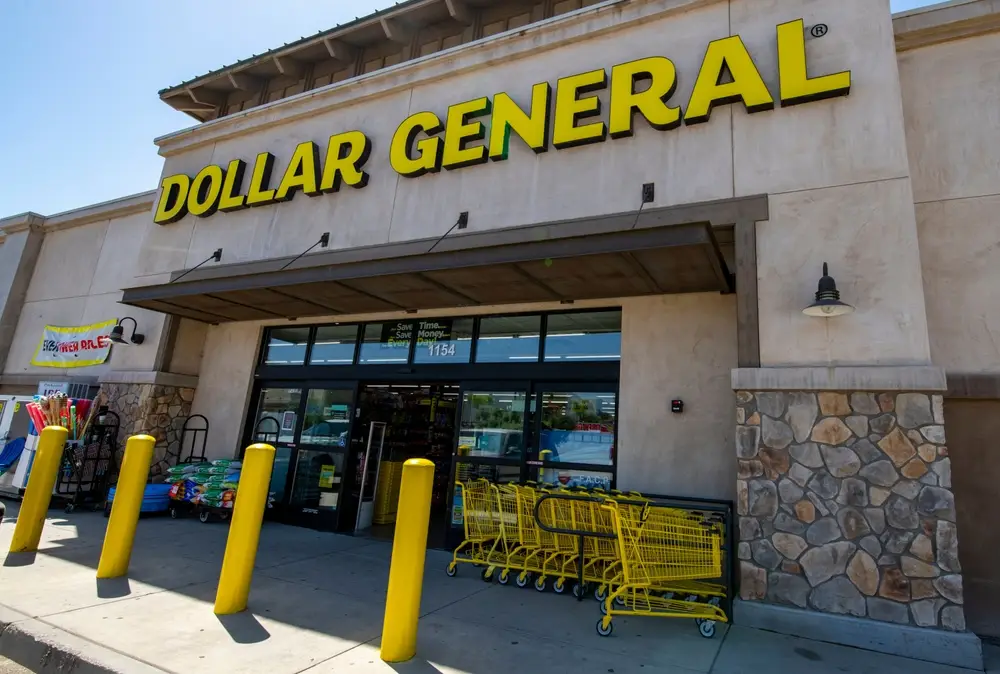Dollar General is facing a new class action lawsuit in Florida that accuses the discount chain of misleading shoppers with deceptive pricing. According to the complaint, filed against Dolgencorp LLC (the company behind Dollar General), the stores often showed one price on the shelf but rang up a higher amount at checkout.
The lawsuit raises concerns that the retailer, which has thousands of locations across the country (including many in rural and low-income communities), may have taken advantage of customers who can least afford to be overcharged.
The Story Behind It
The lead plaintiff, Jon C. Capps, describes a typical shopping trip that he says led to the lawsuit. In March 2024, he says he purchased Coke Zero from a Florida Dollar General store. The shelf displayed one price, but when he went to the checkout counter, the register allegedly charged him more.
While some might dismiss this as a one-off error, Capps claims his experience is part of a larger, consistent issue across Dollar General’s Florida stores. He and his legal team argue that this practice has been ongoing for years and mainly impacts the audience Dollar General markets itself to: Low-income, rural shoppers.
The complaint argues that by advertising low prices on the shelf but charging more at the register, Dollar General may have been making extra profits. On top of that, this profit is stated to have been made at the expense of shoppers who could least afford it. Think of a family shopping on a tight budget, tallying up each item as they walk the aisles. At the register, though, the total comes out higher than they expected. For families already stretched to the limit, even a few extra dollars can throw off the week’s budget and add unnecessary stress.
What Does the Lawsuit Claim?
The lawsuit centers on three main allegations. The allegations are:
- Dollar General misled customers with shelf prices that didn’t match the register totals.
- This is a systemic issue that has affected many stores across the state.
- It violates Florida consumer protection laws, which prohibit businesses from engaging in unfair or deceptive practices.
For shoppers, the lawsuit's allegations highlights a frustrating reality: Many may have spent more than they realized on routine trips to the store. Even small overcharges can add up over time, leaving customers wondering if the convenience of discount shopping came at a hidden cost.
Why Does This Case Matter?
Dollar General isn’t a small mom-and-pop store. The franchise has over 19,000 stores across the country, with its Florida locations being the primary source of groceries and household goods for local residents. When prices don’t match, it can undermine consumer trust and put additional strain on families already facing financial pressure.
This case is more than just a question of a few cents here and there. It goes deeper than that. The lawsuit highlights that a major retailer may have taken advantage of the very communities that rely on it most, and this could have serious consequences for Dollar General. Not only could it affect how Dollar General operates moving forward, but also how other retailers handle pricing practices. It also reminds shoppers that they have the power to hold companies accountable, even if the issue may seem miniscule.

Who Could Join the Class Action Lawsuit?
The proposed class includes Florida residents who shopped at Dollar General within the last four years and were charged more at checkout than the shelf price displayed. If the court certifies the class, notices will be sent to eligible shoppers explaining how they can file a claim.
Consumers who believe they may have been overcharged should hold on to their proof of purchases, as having these records may be valuable when submitting a claim.
What Will Happen Next?
At this time, the lawsuit is still in its early stages. But this is generally what we expect to happen.
- The court needs to decide whether to allow the case to proceed as a class action. If it goes through, Dollar General can either choose to settle with consumers or fight the allegations in court. In many cases, companies prefer to settle outside of court.
- If the case wins, or if the settlement is reached, eligible shoppers may receive refunds for overcharges, additional damages, and coverage of legal fees. Dollar General may also have to adjust its pricing practices to ensure shelf and register prices match in the future.
Frequently Asked Questions (FAQ)
The case claims that Dollar General stores in Florida displayed lower prices on shelves but then charged higher amounts at checkout.
Florida shoppers who purchased items in the last four years and paid more at the register than the listed shelf price may qualify.
Check your receipts against the shelf prices of items you bought. If the register charged more, you may be eligible.
If successful, compensation may be refunded for overcharges and additional damages.




Add Comment